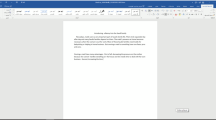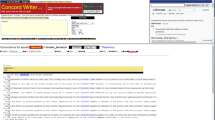Abstract
This study investigated the effects of time on L2 writing quality and learners’ use of writing strategies throughout the entire writing process. The analysis involved 69 Korean undergraduates’ writing strategy questionnaires, retrospective interviews, and writing assignments, all of which were evaluated according to timed (in-class) and untimed (out-of-class) conditions. The results demonstrated that depending on time allotments, there were significant differences in learners’ use of seven categories of writing strategies in the three stages of the writing process by skilled and less-skilled groups. For example, this study found that even less-skilled writers used metacognitive strategies, or so-called “advanced” strategies, more often in the untimed condition than in the timed condition, revealing the role of contextual factors in the activation of writing strategies. Moreover, time was found to be one of the most influential factors in predicting the quality of writing. Despite its exploratory nature, this study provides significant insights into the mutual interplay between time and strategy deployment given the dearth of research in this area.
Similar content being viewed by others
References
Abdollahzadeh, E. (2010). Undergraduate Iranian EFL learners’ use of writing strategies. Writing & Pedagogy, 2(1), 65–90.
Bai, R., Hu, G., & Gu, P. (2014). The relationship between use of writing strategies and English proficiency in Singapore primary schools. The Asia-Pacific Education Researcher, 23(3), 355–365.
Baker, W., & Boonkit, K. (2004). Learning strategies in reading and writing: EAP contexts. RELC Journal, 35(3), 299–328.
Chien, S. (2012). Students’ use of writing strategies and their English writing achievements in Taiwan. Asia Pacific Journal of Education, 32(1), 93–112.
Ellis, R. (2005). Measuring implicit and explicit knowledge of a second language. Studies in Second Language Acquisition, 27, 141–172.
Ferris, D. (2003). Response to student writing: Implications for second language students. Mahwah, NI: Lawrence Erlbaum.
Griffiths, C. (2003). Patterns of language learning strategy use. System, 31, 367–383.
Kenworthy, R. (2006). Timed versus at-home assessment tests: Does time affect the quality of second language learners’ written compositions? TESL-EJ, 10(1). Retrieved from the World Wide Web: http://tesl-ej.org/ej37/a2break.html.
Kim, K. (2008). Strategy use in EFL writing by undergraduate and graduate writers. English Language Teaching, 20(2), 49–67.
Kobayashi, H., & Rinnert, C. (2001). Factors relating to EFL writers’ discourse level revision skills. International Journal of English Studies, 1(2), 71–101.
Lee, J. (2006). Educational fever and South Korean higher education. Revista Electrónica de Investigación Educativa, 8(1), 1–14.
Livingston, J. A. (1997). Metacognition: An overview. Retrieved from the World Wide Web: http://gse.buffalo.edu/fas/shuell/cep564.htm.
Manchón, R., & Roca de Larios, J. (2007). On the temporal nature of planning in L1 and L2 composing. Language Learning, 57(4), 549–593.
Manchón, R., Roca de Larios, J., & Murphy, L. (2007). A review of writing strategies: Focus on conceptualizations and impact of first language. In A. Cohen & E. Macaro (Eds.), Language learner strategies (pp. 229–250). Oxford: Oxford University Press.
Olivares-Cuhat, G. (2002). Learning strategies and achievement in the Spanish writing classroom: A case study. Foreign Language Annals, 35(5), 561–570.
Oxford, R. L. (1990). Language learning strategies: What every teacher should know. New York: New burry House.
Oxford, R. L. (1996). Language learning strategies around the world: Cross-cultural perspectives. (Technical Report No. 13). Honolulu: University of Hawai'i press.
Petrić, B., & Czárl, B. (2003). Validating a writing strategy questionnaire. System, 31(2), 187–215.
Roca de Larios, J., Manchón, R., & Murphy, L. (2006). Generating text in native and foreign language writing: A temporal analysis of problem-solving formulation processes. The Modern Language Journal, 90, 100–114.
Roca de Larios, J., Manchón, R., Murphy, L., & Marin, J. (2008). The foreign language writer’s strategic behavior in the allocation of time to writing processes. Journal of Second Language Writing, 17(1), 30–47.
Roca de Larios, J., Marín, J., & Murphy, L. (2001). A temporal analysis of formulation processes in L1 and L2 writing. Language Learning, 51(3), 497–538.
Sasaki, M. (2004). A multiple-data analysis of the 3.5-year development of EFL student writers. Language Learning, 54, 525–582.
TOEFL Writing Scoring Guide. (2012). Retrieved from https://www.ets.org/s/toefl/pdf/toefl_writing_rubrics.pdf.
White, C., Schramm, K., & Chamot, A. (2007). Research methods in strategy research: Re-examining the toolbox. In A. Cohen & E. Macaro (Eds.), Language learner strategies (pp. 93–116). Oxford: Oxford University Press.
Zamel, V. (1983). The composing processes of advanced ESL students: Six case studies. TESOL Quarterly, 17(2), 165–187.
Acknowledgments
This work was supported by Hankuk University of Foreign Studies Research Fund.
Author information
Authors and Affiliations
Corresponding author
Appendix: Writing Strategies Questionnaire Items (English Version)
Appendix: Writing Strategies Questionnaire Items (English Version)
Never true | Usually not true | Somewhat not true | Somewhat true | Usually true | Always true | |
|---|---|---|---|---|---|---|
1. Before writing… | ||||||
I do extra study outside classroom to improve my writing | 1 | 2 | 3 | 4 | 5 | 6 |
I read my lesson notes, handouts, and course requirements to memorize and to use new sentences and vocabulary in my writing | 1 | 2 | 3 | 4 | 5 | 6 |
I make a timetable for the writing process | 1 | 2 | 3 | 4 | 5 | 6 |
I consider the task or instructions carefully | 1 | 2 | 3 | 4 | 5 | 6 |
I read the feedback from my previous writing to memorize new words and expressions | 1 | 2 | 3 | 4 | 5 | 6 |
I note down interesting and helpful sentences and vocabulary, looking at a model written by a native speaker or more proficient writer | 1 | 2 | 3 | 4 | 5 | 6 |
I start writing without having a written or mental plan | 1 | 2 | 3 | 4 | 5 | 6 |
I think about what I want to write and have a plan in my mind, but not on paper | 1 | 2 | 3 | 4 | 5 | 6 |
I note down words and short notes related to the topic in Korean | 1 | 2 | 3 | 4 | 5 | 6 |
I make an outline or plan in English | 1 | 2 | 3 | 4 | 5 | 6 |
I discuss what I am going to write with other students or my teachers | 1 | 2 | 3 | 4 | 5 | 6 |
I try to write in a comfortable, quiet place where I can concentrate | 1 | 2 | 3 | 4 | 5 | 6 |
2. When writing… | ||||||
I write a draft in Korean first and then translate it into English | 1 | 2 | 3 | 4 | 5 | 6 |
I stop after each sentence to read it again | 1 | 2 | 3 | 4 | 5 | 6 |
I stop after a few sentences or a whole paragraph, covering one idea, in order to evaluate whether it fits the idea | 1 | 2 | 3 | 4 | 5 | 6 |
I try to predict what to write next while writing | 1 | 2 | 3 | 4 | 5 | 6 |
Once I start writing, I should focus on my work while writing | 1 | 2 | 3 | 4 | 5 | 6 |
I go back to my outline and change it to make my ideas clearer while writing | 1 | 2 | 3 | 4 | 5 | 6 |
I go for sure in grammar, vocabulary, spelling, and punctuation | 1 | 2 | 3 | 4 | 5 | 6 |
If I don’t know a word in English, I write it in Korean and later try to find an appropriate English word | 1 | 2 | 3 | 4 | 5 | 6 |
If I don’t know a word in English, I write a similar English word that I know | 1 | 2 | 3 | 4 | 5 | 6 |
If I don’t know a word in English, I stop writing and look up the word in the dictionary | 1 | 2 | 3 | 4 | 5 | 6 |
I use an English–Korean, or Korean–English dictionary | 1 | 2 | 3 | 4 | 5 | 6 |
I use an English–English dictionary | 1 | 2 | 3 | 4 | 5 | 6 |
I don’t use a dictionary until I finish writing a draft | 1 | 2 | 3 | 4 | 5 | 6 |
I ask somebody to help out when I have problems while writing | 1 | 2 | 3 | 4 | 5 | 6 |
3. When revising… | ||||||
I read what I have written | 1 | 2 | 3 | 4 | 5 | 6 |
I only read what I have written when I have finished the whole paper | 1 | 2 | 3 | 4 | 5 | 6 |
When I have finished my work, I hand it in without reading it; it is finished | 1 | 2 | 3 | 4 | 5 | 6 |
I use reference when revising | 1 | 2 | 3 | 4 | 5 | 6 |
I go back to my writing to edit and change the content (ideas) | 1 | 2 | 3 | 4 | 5 | 6 |
I go back to my writing to edit and change the grammar, vocabulary, spelling, and punctuation | 1 | 2 | 3 | 4 | 5 | 6 |
I go back to my writing to edit and change my organization | 1 | 2 | 3 | 4 | 5 | 6 |
I go back to my writing to edit and change sentence structure | 1 | 2 | 3 | 4 | 5 | 6 |
I focus on one thing at a time when revising (e.g., content, structure) | 1 | 2 | 3 | 4 | 5 | 6 |
I drop my fist draft and start writing again | 1 | 2 | 3 | 4 | 5 | 6 |
I check if my writing matches the requirements of the task or instructions | 1 | 2 | 3 | 4 | 5 | 6 |
I show my text to somebody and ask for his/her opinion | 1 | 2 | 3 | 4 | 5 | 6 |
I compare my paper with that of my friends on the same topic | 1 | 2 | 3 | 4 | 5 | 6 |
I remember my mistakes after I get back the paper with feedback from the teacher, and try to learn from them | 1 | 2 | 3 | 4 | 5 | 6 |
I encourage myself to write in English and thus am not afraid of making errors | 1 | 2 | 3 | 4 | 5 | 6 |
I give myself a reward when I have finished | 1 | 2 | 3 | 4 | 5 | 6 |
Rights and permissions
About this article
Cite this article
Na, S., Yoon, H. Effects of In-class and Out-of-class Writing Assignments on L2 Writing Strategy Use and Writing Quality. Asia-Pacific Edu Res 25, 195–205 (2016). https://doi.org/10.1007/s40299-015-0250-5
Published:
Issue Date:
DOI: https://doi.org/10.1007/s40299-015-0250-5




